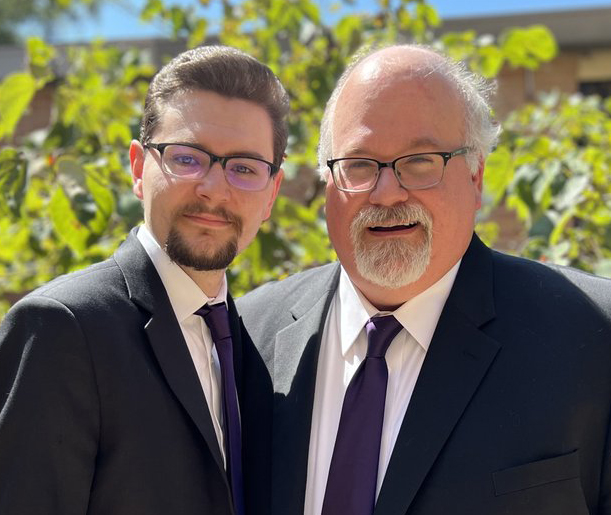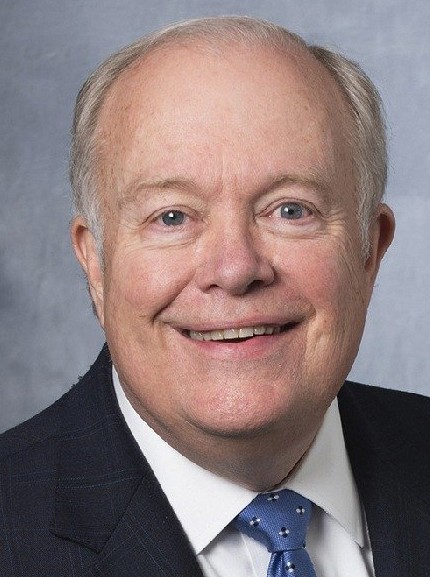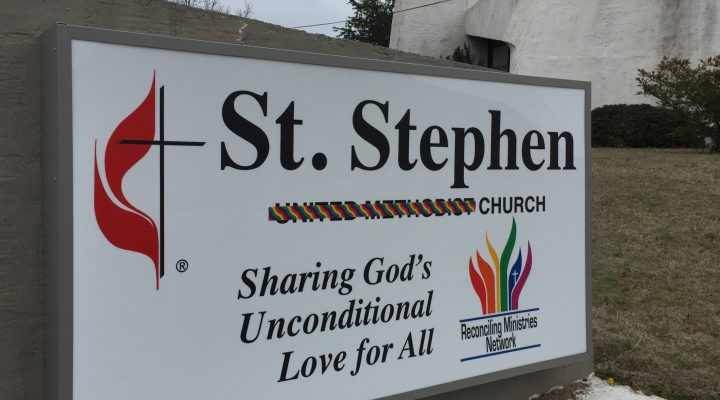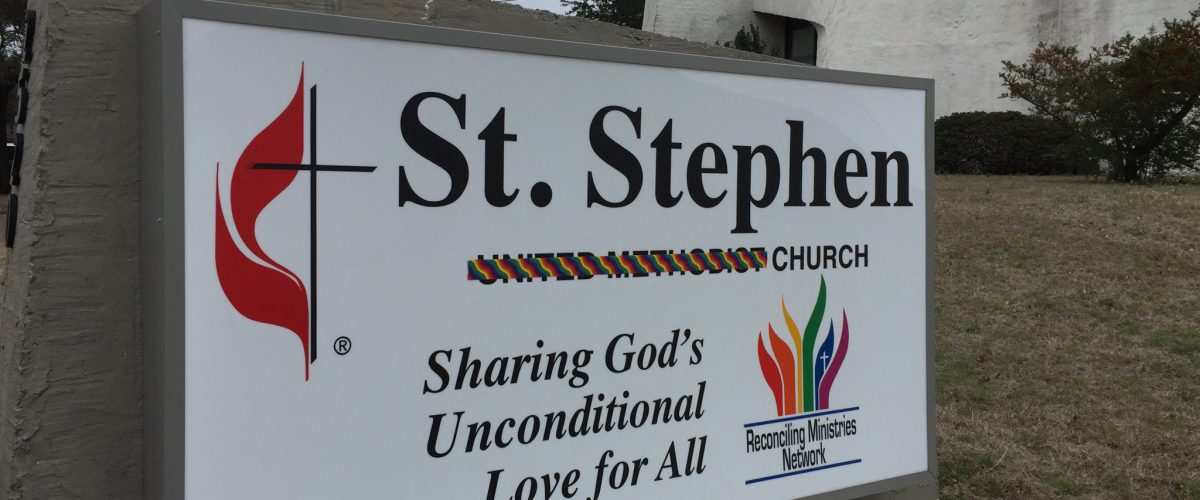A congregation in suburban Dallas is withholding about $15,000 in dues to the United Methodist Church’s North Texas Annual Conference to protest the “scapegoating” of a former pastor there who is gay.
As if the schism in the UMC weren’t complicated enough, this action runs the opposite direction of the majority of Methodist churches protesting against the UMC, who instead fear the nation’s second-largest Protestant denomination has become too soft on LGBTQ exclusion.

Kade Rogers and Gregory S. Neal
The protest by St. Stephen United Methodist Church concerns Gregory S. Neal, a former pastor, who in October married his fiancé, Kade Rogers, in defiance of official church rules against same-sex unions.
Those rules were driven — before the global pandemic — by conservative forces in the United States combined with conservative forces in the African church but are widely expected to be loosened whenever the UMC finally holds its twice-delayed global meeting. That reality has prompted hundreds of churches across the nation to break ties with the UMC, some joining a new conservative denomination, the Global Methodist Church.
For now, the LGBTQ battle is being fought on a district-by-district and state-by-state level — and the battlefield is quite uneven.
But for now, the LGBTQ battle is being fought on a district-by-district and state-by-state level — and the battlefield is quite uneven.
The North Texas Conference, which includes Dallas and points far beyond, is a hotly contested area for both sides in the UMC schism.
In the Methodist tradition, Neal has served churches within the same district. Although a former pastor at St. Stephen, he most recently was pastor at Lakewood UMC, which is located in a generally progressive and affluent region of East Dallas known as Lakewood. That congregation — like many others in Dallas proper — for years has taken the pro-LGBTQ side of the debate, even painting the word “United” on its outdoor sign in rainbow colors.

Bishop Michael McKee
When he and Rogers formally married in October, the bishop of the North Texas Conference, Michael McKee, suspended Neal from the pastorate, saying such an action is technically forbidden by church law.
In January, Bishop McKee said the complaint against Neal would be held “in abeyance” until the 2024 General Conference. In the meantime, Neal has not been allowed to return to active ministry.
McKee has since retired and now serves as interim dean at Perkins School of Theology at Southern Methodist University.
The members at St. Stephen cried foul, however, because they believe Neal has been treated more harshly than other pastors in the conference who also have defied church law by leading their congregations out of the UMC.
Jennifer Keltner, chair of St. Stephen’s leadership council, said those dissident pastors also have acted contrary to church rules but have not been disciplined for their infractions. She specifically cited Arthur Jones, senior pastor of St. Andrew UMC in Plano; Mark Vowell, pastor of First UMC in Frisco; and Doug Fox, pastor of First UMC in Irving — all larger and wealthier churches than St. Stephen.
“The action against Dr. Neal was far harsher than it had to be,” Keltner said.
Thus, the Church Council of St. Stephen United Methodist Church voted in late December to withhold its funding of what Methodists call “apportionments” to the regional denomination — flipping a tactic that has been used by conservative churches to protest the perceived liberalism of the denomination by withholding funds to the global church.
“We’re outraged that a gay minister is being made a scapegoat for the splintering that’s happening in the United Methodist Church,” said St. Stephen lay leader John Astle. “We’ve been assured previously that LGBTQ persons in North Texas would be treated fairly and that complaints against LGBTQ clergy would be postponed until church law could be reviewed.
“That turned out not to be the case, and we decided as a council that it was time to hold conference leaders accountable for how they’ve failed to apply church law equally.”
“We regret having to take such action, but we decided it was the only way we could speak up for justice in this case.”
Keltner added: “We regret having to take such action, but we decided it was the only way we could speak up for justice in this case.”
This is not the first time St. Stephen UMC has rocked the boat for the cause of social justice.
In 1964, its founding pastor, the late William K. McElvaney, and lay leaders convinced the Mesquite Independent School District to desegregate a year before the Civil Rights Act was passed in the United States.
In 1998, St. Stephen became the first United Methodist congregation in North Texas to join the Reconciling Ministries Network, an unofficial group committed to LGBTQ inclusion and justice.
“Our United Methodist baptismal vows commit us ‘to accept the power God gives us to resist injustice, evil and oppression in whatever forms they present themselves,'” said Geoffrey C. Moore, St. Stephen’s current pastor. “Our church’s leaders view withholding our conference apportionments to seek justice as fulfilling our baptismal vows.”
Related articles:
United Methodists elect married gay clergyman among 13 new bishops who represent many other firsts
In stunning development, United Methodist African bishops repudiate separatist group
Foundry Network offers third alternative to disaffected UMC churches
Events turn against disaffected forces wanting to leave the UMC


